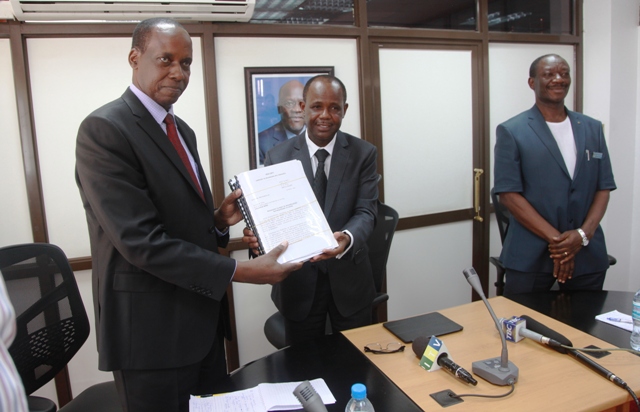THE government will this week release indicative prices for the sale of land plots countrywide as a measure to protect buyers, the Deputy Minister for Lands, Housing and Human Settlements Development, Ms Angeline Mabula, has said. Moreover, she said, it is illegal for land officers to acquire people’s land before paying them the needed compensation.
She gave the announcement at the National Assembly here yesterday when responding to a number of questions posed to her ministry during the question and answer session.
Responding to question by Mr Faustine Ndungulile (Kigamboni - CCM), who wanted to know when the government will waive its stop order of surveying and sale of plots in Kigamboni areas, Ms Mabula said the move aimed at coming up with indicative prices for sale of land plots.
“We have decided to stop the survey by private companies so that we come up with indicative prices as there others who were selling them at the exorbitant prices,” she said.
She gave an example of Kigamboni where there are three private companies surveying the plots for sale whereas they range between 20,000/-, 15,000/- and 10,000/- per square metre, which, she described as unrealistic.
“We also survey and sale plots, but the prices offered by private companies are unrealistic, that is why we decided to stop the process as we come up with indicative prices which will be out this week” said Ms Mabula.
She was reacting to the main question by Ms Lucy Magereli (Special seats- CHADEMA), who wanted to know the government’s plans to ensure that the Master Plans are available in all municipalities as a land use and city plan toolkit.
The deputy minister said the Master Plan and City Plan architects were supposed to be available in all responsible authorities in cities, town council, municipal and district councils.
She noted that lands conflicts needed special attention and that is why her ministry had for a start, issued the master plan to all local government chairpersons in Dar es Salaam as key persons in dealing with the problem.
Ms Mabula stated that the government was intending to empower the local government chairpersons as key partners in implementing proper land use by training them to have capacity to read the master plan and stand by their intended use.
“They have to be given the basic skills to be able to read the master plans and at the end of the day they will be guided by the earmarked land use when endorsing land sale” she said.
Ms Anna Lupembe (Special Seats-CCM), wanted to know when the government will start issue land certificates for Kichangani residents in Mpanda Urban District to which the deputy minister said they were still demarcating the areas before issuing the plots.
Ms Mabula told the House that it is forbidden for a land officer to acquire land from the people regardless of the intended use before paying them appropriate compensation. “It is forbidden to acquire people’s land or farms without completing all proper acquisition rules, including compensation.
Land officers must be guided by this,” she directed. She added that the government is also working on the land conflicts involving Kibada residents in Kigamboni to verify the land certificates for the contested areas before allowing them to go ahead with construction.












